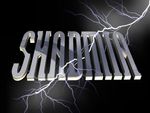
In a move that caught Washington completely off guard and sent shock waves throughout the world,
King Abdullah of Saudi Arabia called the US presence in Iraq an
"illegitimate foreign occupation". These comments were made at a two-day Arab summit held in Riyadh.
[youtube=http://youtube.com/watch?v=JaHJ3dj3omg]
It marks the first time that Saudi Arabia has publicly criticised the US role in Iraq. It also appears to be a signal that the Saudis are moving to take on a more visible leadership role in the region and is not afraid to bump heads with the US to achieve its goals. They have been very active lately in tackling the problems in the region. They have held reconciliation talks with Palestinian factions, discussed Iran's nuclear ambitions and been involved in the situation in Lebanon.
The recent Saudi moves may be an effort to contain the
influence of Iran in the region, which has been involved in everything from Palestinian politics to confrontation with the West over its nuclear program. It has provided financial and military support to many factions including Hezbollah in Lebanon, Hamas in Palestine and Shiites in Iraq.
Saudi King Abdallah said that the United States was occupying Iraq and made it clear that he was on the side of his “brothers”.
“In beloved Iraq, blood is flowing between brothers, in the shadow of an illegitimate foreign occupation, and abhorrent sectarianism threatens a civil war.”
In response, the
Iraqi President Jalal Talabani said the term occupation has “
negative implications” and is “in contradiction” to the vision of “Iraqi patriotic and national forces.”
The US, obviously taken by surprise by the King's remarks said:
"The United States and Saudi Arabia have a close and cooperative relationship on a wide range of issues," White House spokeswoman Dana Perino said. "And when it comes to the coalition forces being in Iraq, we are there under the U.N. Security Council resolutions and at the invitation of the Iraqi people."
Undersecretary of State
Nicholas Burns told senators.
"We disagree with them, we were a little surprised to see those remarks."The public rebuke of the US by the Saudis also seems to indicate that the government of
Iraq is not quite accepted in the rest of the Arab world and lacks legitimacy in the eyes of its neighbors. There are no Arab embassies in Iraq and no Arab states have formerly recognised the al-Maliki Shiite-led government.
The summit has taken a tough line on Iraq, demanding it change its constitution and military to include more Sunnis and end a program of uprooting former members of Saddam Hussein's Baath party. The Sunni-led governments of the Arab world have long been suspicious of Iraq's Shiite leadership, blaming it for fueling violence by discriminating against Sunni Arabs and accusing it of helping mainly Shiite Iran extend its influence in the region.

 Monday, April 2, 2007 at 5:22AM
Monday, April 2, 2007 at 5:22AM 








